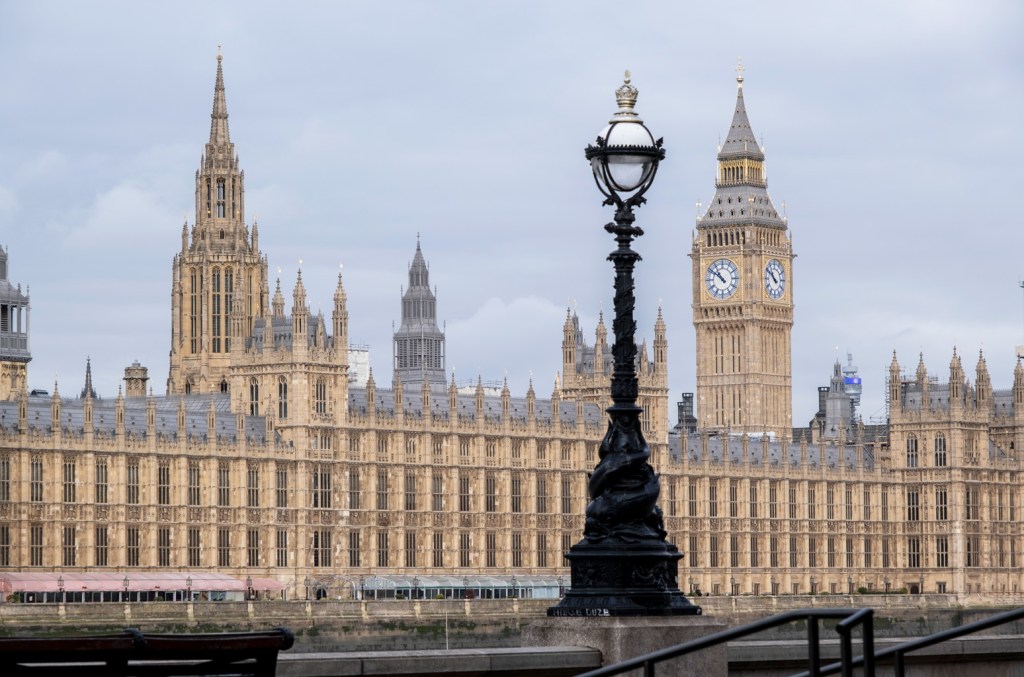
Mike Kemp/In Pictures via Getty Images
A UK parliamentary committee has called for new “fundamental reforms” to music streaming to address what it says are “disastrous returns” for songwriters and publishing rights holders.
The Culture, Media and Sport (CMS) Committee's report, published on Wednesday (10 April), urges the UK government to “do more to ensure that music creators are paid fairly” and to take drastic measures. We are calling for copyright reform to proceed.
These reforms include changes to the distribution of recording and publishing rights revenue from music streaming, which is now set at approximately 55% for recording rights and 15% for publishing rights. This weighting “does not reflect the importance of songwriters, composers, and publishers in the music streaming process,” the committee said. Its members called on government ministers to consult with fans, creators and industry stakeholders to “encourage optimal rates” for publishing rights that “reward creators fairly for their work”. There is.
Other recommendations in the CMS report include the introduction of a statutory “private reproduction” tax similar to the one that exists in other European countries such as France, Germany and Italy. This would require a small tax on the purchase of electronic equipment and blank media that can be used to store songs, which would then be paid to artists and songwriters through collecting bodies. The introduction of such a scheme could generate revenues of between £250 million ($313 million) and £300 million ($376 million) per year, compared to other markets where private copying mechanisms exist. The CMS committee maintains that reciprocal payments from
“The lack of such a system in the UK means that not only are UK creators unable to receive payments from the domestic market, but payments from overseas are also under threat,” the report said, adding that private reproductions They are calling for the introduction of a tax. within the next 12 months.
On the issue of artificial intelligence, the CMS Committee reiterated previous calls for stronger creator rights against AI developers using copyrighted works for training purposes without consent or fair compensation. Ta.
“Given creators’ concerns that their intellectual property is already being used for AI development without a license or practical means, we are concerned that the current situation is simply favoring AI developers. “The report criticizes the government's lack of establishment.” Code of Practice for the Use of AI and Intellectual Property.
More support should also be given to freelancers and self-employed workers in creative industries such as the music industry, commissioners said, addressing long-standing complaints about contracts and working conditions.
The CMS report is the latest chapter in a long series of government-led interventions into the UK music industry, which began with a 2020 parliamentary inquiry into the music streaming business, fueling artists' dissatisfaction with low fees from streaming. The inquiry concluded the following year by questioning the industry's dominance of major record labels and declaring that the music streaming business “needs a complete reset”.
Since then, a number of government-led working groups, studies and initiatives have taken place, including studies looking at 'fair pay' and the impact of AI on the music industry. A working group focused on creator compensation is scheduled to meet for the first time this month.
Despite progress, the CMS chair said Dame Caroline Dinenage MP The UK government “needs to act even faster to ensure music creators are truly compensated properly for their work”.
In a statement accompanying Wednesday's report, Dinenage said: “To stop the deterioration of relations with creators, governments need to get back on track by filling the holes in outdated copyright and intellectual property regulations. There is,” he said.
In response to the, joe twistThe CEO of British label industry body BPI said the commission was right to highlight creators' concerns about generative AI, which he said was “undoubtedly one of the biggest challenges facing the creative industry today. “The most serious problem in the world,” he said, but said the report was not aware of it. “With the support of labels, more British artists than ever are succeeding in the streaming economy.”
“In an increasingly competitive global industry, their approach risks restricting investment and harming future British talent,” Mr Twist said in a statement.
The Council of Music Makers, an umbrella industry group whose members include the Musicians Union and the Music Managers Forum, was more positive about the committee's findings. The group said in a statement that the report provides a good overview of the problems and some of the proposed solutions to improve creator compensation, but to make real progress. warned that “stakeholders across the music industry need to stop denying it.'' Face reality and instead come to the table with solutions, whether it's copyright reform proposed by members of Congress or a negotiated agreement. ”


